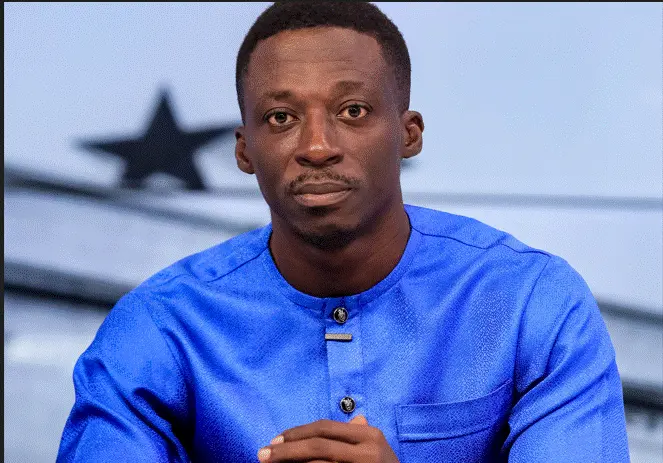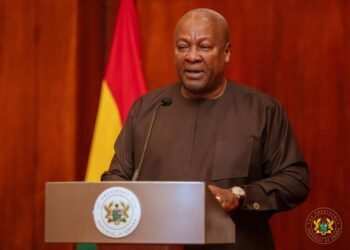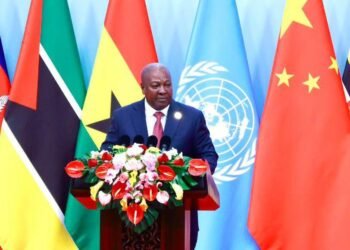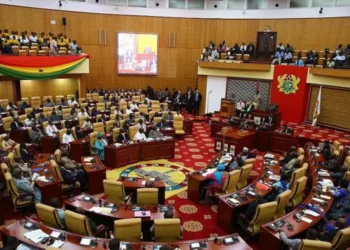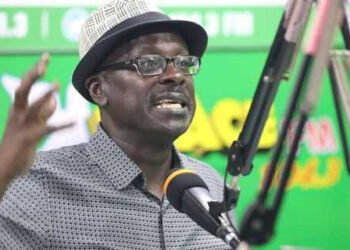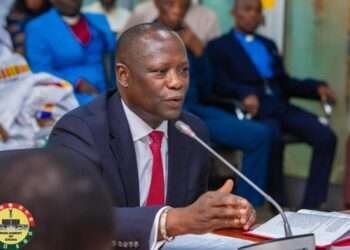Private legal practitioner, Austin Kwabena Brako-Powers, has described as “mischievous” attempts by Attorney-General Dr. Dominic Ayine to brand the Ghana Bar Association (GBA) as partisan in its advocacy on constitutional matters.
His intervention follows an exchange between the Attorney-General and the Association at its annual conference in Wa, where accusations of bias dominated the discourse.
Speaking on the matter, Brako-Powers argued that the Attorney-General’s claims of bias ignored the historical record of the Association’s silence under both the National Democratic Congress (NDC) and the New Patriotic Party (NPP).
“The GBA remained conspicuously quiet under President Mahama during Lauretta Lamptey’s removal, and equally silent under President Akufo-Addo during Charlotte Osei’s removal”
Austin Kwabena Brako-Powers, Private Legal Practitioner
According to him, such a track record made it misleading to accuse the Association of suddenly becoming partisan because of its concerns over the removal of Chief Justice Gertrude Torkornoo. Brako-Powers stressed that the Attorney-General was right to raise questions about selective advocacy but wrong to describe it as political bias.

“If the GBA is now speaking out, it would be unfair – even mischievous – to accuse it of political bias,” he maintained. He further called for support for the Association’s leadership, insisting that Ghana needed the GBA “at its best” to defend constitutional governance and protect democratic development.
The controversy began when Attorney-General Dr. Ayine used his address at the conference to question the consistency of the GBA’s advocacy on Article 146 petitions.
“The honest question we have to ask ourselves is, what changed? All three cases concerned the independence of constitutional bodies. Yet the Bar found its voice only in relation to the third petition, which happened to align with the opposition”
Dr. Dominic Ayine, Attorney-General
He argued that the Association’s silence during the removals of Lauretta Lamptey in 2015 and Charlotte Osei in 2018, contrasted with its intervention during Justice Torkornoo’s removal, created the perception of political alignment.
GBA Rejects Allegations
The GBA, however, rejected the Attorney-General’s assertions. Public Relations Officer of the Association, Saviour Kudze, insisted that the Bar’s current stance was not partisan but rooted in principle.
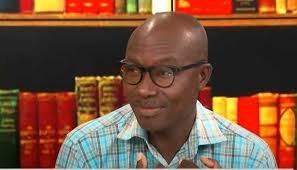
“The Bar’s position is clear – we respectfully disagree with him. Reading his own speech, he referenced the removal of [former] CHRAJ boss Lauretta Lamptey and [former] EC Chair Charlotte Osei, both under Article 146, when there were no regulations in place. Yet the processes went on”
Saviour Kudze, Public Relations Officer of the GBA
He explained that beyond those high-profile cases, other judges had also been removed under the same constitutional provisions without regulations. For him, the Bar’s call today for regulations was not evidence of partisanship but of institutional maturity.
He added that evolving positions were normal in any institution: “Even as human beings, the fact that you didn’t take a certain decision yesterday doesn’t mean you can’t take it today or tomorrow. So I think he got it wrong. We disagree with him.”
The GBA maintained that its role in shaping Ghana’s democratic development requires it to challenge gaps in constitutional practice, insisting that its advocacy for clear rules governing Article 146 petitions is meant to protect the independence of constitutional bodies and ensure that removals of public officials follow due process.
Observers note that the exchanges between the Attorney-General and the GBA underscore wider debates about the balance between legal advocacy and political influence.

While Brako-Powers and the Bar Association argue that the renewed activism should be encouraged, critics warn that the perception of partisanship could weaken public confidence in an institution historically viewed as a guardian of constitutionalism.
With Ghana under a new government, questions of institutional independence and judicial accountability remain central to national governance.
Whether the GBA can maintain its reputation as a neutral defender of constitutional principles amid increasing political scrutiny may shape how the public views its role in the years ahead.
READ ALSO: Actress Questions Cinema Worthiness Of Some Movies


